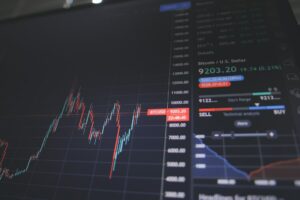Forex Trading for Dummies: A Beginner’s Guide to Currency Trading
Forex trading, also known as foreign exchange trading, is the buying and selling of currencies on the foreign exchange market. It is one of the largest and most liquid financial markets in the world, with trillions of dollars traded daily. For beginners who are new to the world of forex trading, it can seem overwhelming and complex. However, with the right knowledge and guidance, anyone can learn to trade forex successfully.
This beginner’s guide aims to provide a comprehensive introduction to forex trading, covering everything from the basics to advanced strategies. By the end of this article, you will have a good understanding of how the forex market works and the key factors that influence currency prices.
Understanding the Forex Market
The forex market operates 24 hours a day, five days a week, allowing traders to buy and sell currencies at any time. Unlike traditional stock markets, there is no central exchange for forex trading. Instead, it is a decentralized market where participants, including banks, financial institutions, and individual traders, trade currencies electronically.
Currencies are traded in pairs, such as EUR/USD or GBP/JPY. The first currency in the pair is called the base currency, while the second currency is the quote currency. The exchange rate represents how much of the quote currency is needed to buy one unit of the base currency. For example, if the EUR/USD exchange rate is 1.20, it means that one euro can be exchanged for 1.20 US dollars.
Factors Affecting Currency Prices
Currency prices are influenced by various factors, including economic indicators, geopolitical events, and market sentiment. Understanding these factors is essential for successful forex trading.
Economic indicators, such as interest rates, GDP growth, and employment data, have a significant impact on currency prices. Central banks play a crucial role in setting interest rates, and changes in interest rates can affect the value of a currency. Higher interest rates typically attract foreign investors, leading to a stronger currency.
Geopolitical events, such as elections, political instability, and trade disputes, can cause volatility in the forex market. For example, the Brexit referendum in 2016 caused significant fluctuations in the value of the British pound.
Market sentiment also plays a crucial role in currency prices. Traders’ perceptions of the market, based on technical analysis, news, and economic data, can drive prices up or down. It is important to stay updated on market news and trends to make informed trading decisions.
Getting Started with Forex Trading
To start trading forex, you will need a computer or mobile device with internet access, a trading platform, and a brokerage account. There are numerous online brokers that offer forex trading services, so it is important to choose a reputable and regulated broker.
Once you have set up your trading account, you can start by familiarizing yourself with the trading platform and its features. Most platforms offer demo accounts, which allow you to practice trading with virtual money. This is a great way to learn the basics and test your trading strategies without risking real capital.
Developing a Trading Strategy
Having a trading strategy is crucial for long-term success in forex trading. A trading strategy outlines your approach to trading, including entry and exit points, risk management techniques, and money management rules.
There are several trading strategies to choose from, including trend following, range trading, and breakout trading. Each strategy has its own set of rules and indicators. It is important to find a strategy that suits your trading style and risk tolerance.
Risk Management
Managing risk is vital in forex trading. It involves setting appropriate stop-loss orders to limit potential losses and using proper position sizing techniques. It is recommended to risk only a small percentage of your trading capital on each trade, typically 1-2%. This ensures that even if you have a series of losing trades, you won’t blow up your account.
Continued Learning and Practice
Forex trading is a skill that takes time and practice to master. It is important to continuously educate yourself about the forex market, learn new trading strategies, and stay updated on market news. Participating in online forums, attending webinars, and reading educational resources can help you enhance your trading skills.
Conclusion
Forex trading offers great opportunities for individuals to profit from the fluctuations in currency prices. However, it is important to approach forex trading with caution and to invest time in learning and practicing. By understanding the basics of the forex market, staying updated on market news, and developing a solid trading strategy, beginners can increase their chances of success in currency trading. Remember, forex trading is not a get-rich-quick scheme, but with dedication and discipline, it can be a rewarding venture.





